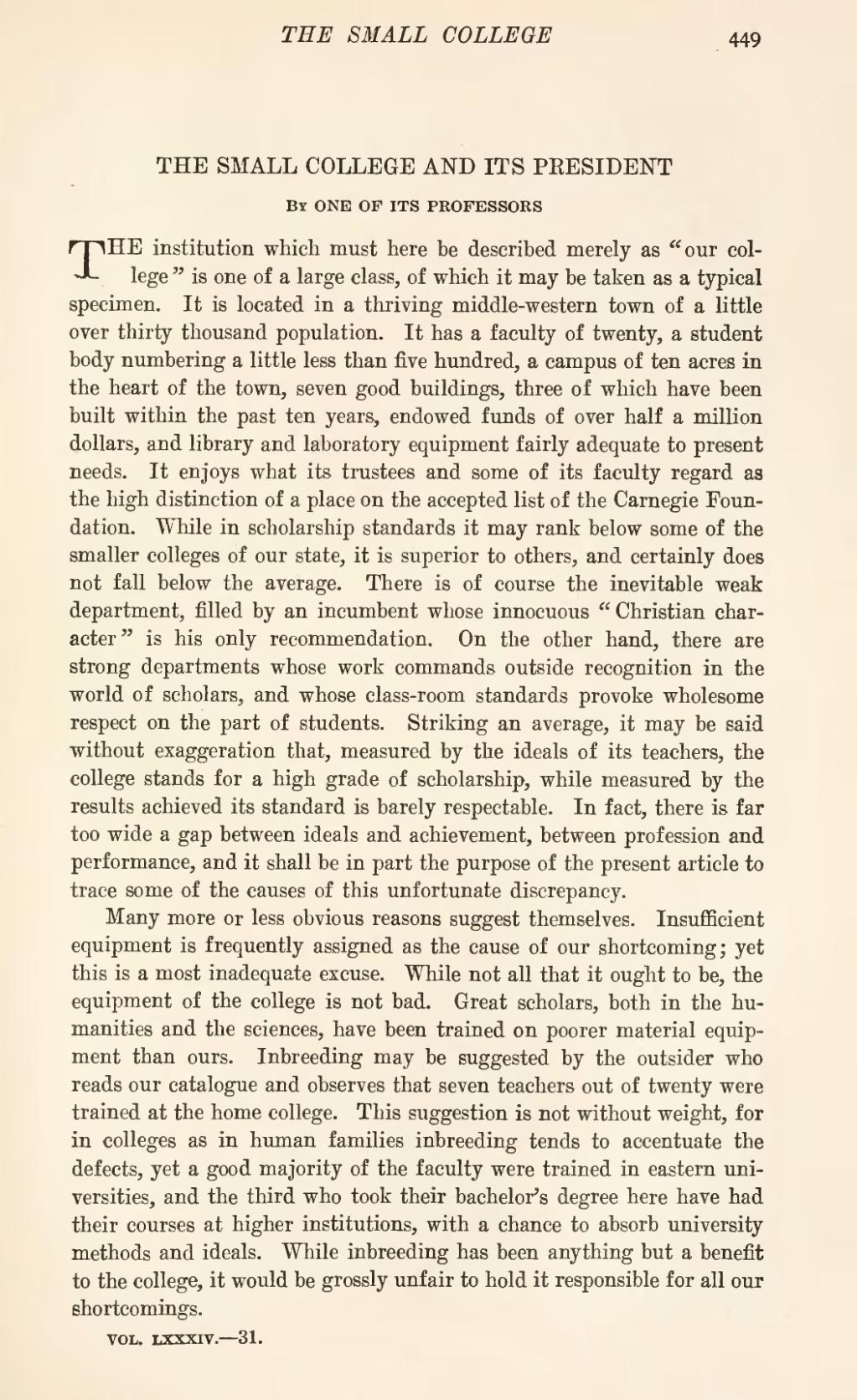| THE SMALL COLLEGE AND ITS PRESIDENT |
By ONE OF ITS PROFESSORS
THE institution which must here be described merely as "our college" is one of a large class, of which it may be taken as a typical specimen. It is located in a thriving middle-western town of a little over thirty thousand population. It has a faculty of twenty, a student body numbering a little less than five hundred, a campus of ten acres in the heart of the town, seven good buildings, three of which have been built within the past ten years, endowed funds of over half a million dollars, and library and laboratory equipment fairly adequate to present needs. It enjoys what its trustees and some of its faculty regard as the high distinction of a place on the accepted list of the Carnegie Foundation. While in scholarship standards it may rank below some of the smaller colleges of our state, it is superior to others, and certainly does not fall below the average. There is of course the inevitable weak department, filled by an incumbent whose innocuous "Christian character" is his only recommendation. On the other hand, there are strong departments whose work commands outside recognition in the world of scholars, and whose class-room standards provoke wholesome respect on the part of students. Striking an average, it may be said without exaggeration that, measured by the ideals of its teachers, the college stands for a high grade of scholarship, while measured by the results achieved its standard is barely respectable. In fact, there is far too wide a gap between ideals and achievement, between profession and performance, and it shall be in part the purpose of the present article to trace some of the causes of this unfortunate discrepancy.
Many more or less obvious reasons suggest themselves. Insufficient equipment is frequently assigned as the cause of our shortcoming; yet this is a most inadequate excuse. While not all that it ought to be, the equipment of the college is not bad. Great scholars, both in the humanities and the sciences, have been trained on poorer material equipment than ours. Inbreeding may be suggested by the outsider who reads our catalogue and observes that seven teachers out of twenty were trained at the home college. This suggestion is not without weight, for in colleges as in human families inbreeding tends to accentuate the defects, yet a good majority of the faculty were trained in eastern universities, and the third who took their bachelor's degree here have had their courses at higher institutions, with a chance to absorb university methods and ideals. While inbreeding has been anything but a benefit to the college, it would be grossly unfair to hold it responsible for all our shortcomings.

